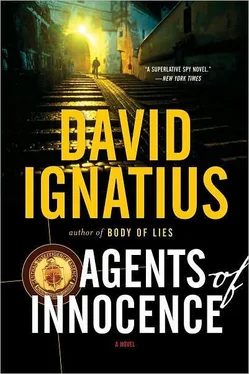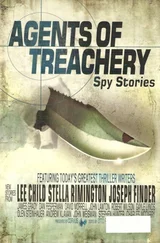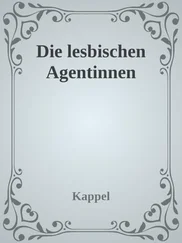David Ignatius - Agents of Innocence
Здесь есть возможность читать онлайн «David Ignatius - Agents of Innocence» весь текст электронной книги совершенно бесплатно (целиком полную версию без сокращений). В некоторых случаях можно слушать аудио, скачать через торрент в формате fb2 и присутствует краткое содержание. Жанр: Шпионский детектив, на английском языке. Описание произведения, (предисловие) а так же отзывы посетителей доступны на портале библиотеки ЛибКат.
- Название:Agents of Innocence
- Автор:
- Жанр:
- Год:неизвестен
- ISBN:нет данных
- Рейтинг книги:3 / 5. Голосов: 1
-
Избранное:Добавить в избранное
- Отзывы:
-
Ваша оценка:
- 60
- 1
- 2
- 3
- 4
- 5
Agents of Innocence: краткое содержание, описание и аннотация
Предлагаем к чтению аннотацию, описание, краткое содержание или предисловие (зависит от того, что написал сам автор книги «Agents of Innocence»). Если вы не нашли необходимую информацию о книге — напишите в комментариях, мы постараемся отыскать её.
Agents of Innocence — читать онлайн бесплатно полную книгу (весь текст) целиком
Ниже представлен текст книги, разбитый по страницам. Система сохранения места последней прочитанной страницы, позволяет с удобством читать онлайн бесплатно книгу «Agents of Innocence», без необходимости каждый раз заново искать на чём Вы остановились. Поставьте закладку, и сможете в любой момент перейти на страницу, на которой закончили чтение.
Интервал:
Закладка:
Kaslik was a symbol of Lebanon’s troubles. Once a sleepy religious institution, the university had in recent years become a center for militant Maronitism, a place where priests and students met to discuss Christian political tactics rather than theology. The issue was Christian survival, argued the firebrands of Kaslik. The Palestinian commandos had tipped the political balance in Lebanon toward the Moslems, endangering the protected status of the Christians. Some of the Maronite theorists went further and advanced the ultimate Arab heresy: the Lebanese Christians were like the Jews of Israel! Both were tiny islands in a hostile sea of Islam and Arabism. Before it was too late, the Christians should emulate the Jews and vanquish their enemies.
Father Maroun Lubnani met Rogers at the gate and escorted him to his monastic cell, a simple room that contained a narrow brass bed, a desk, two chairs, and a crucifix. Father Maroun was a sturdy man, built like a football linebacker. He wore a simple cassock with a rope belt, as if to say: I am a humble friar. Rogers didn’t believe it. He introduced himself to the Lebanese cleric discreetly, identifying himself only as a representative of the U.S. government who worked at the embassy.
Father Maroun gestured with his hand as if to say: Come now. Do you take me for a fool? The priest appeared surprised when Rogers spoke to him in Arabic. He said he would prefer to speak in French.
“Are you acquainted with the history of our Church in the Middle East?” Father Maroun asked.
Rogers didn’t answer, but it seemed that no response was required. Father Maroun had a prepared text.
“It is a history, I may say, of survival. It is the story of a mountain people who would not surrender their faith or their liberty.” As he spoke, the priest gestured with his large, thick fingers.
“Our ancestors sought refuge in Mount Lebanon thirteen hundred years ago, following a theological dispute in which they sided with Rome against Byzantium. They were driven from northern Syria into these mountains, and their ancestors have remained here ever since.”
The priest paused.
“Fighting for survival,” ventured Rogers.
Father Maroun looked at him with the pained expression of a professor whose lecture has been interrupted by an over-eager pupil. He arched his eyebrows and continued.
“The Maronites were never warriors. We were montagnards who fought only to protect ourselves. We welcomed other persecuted minorities into our midst: Greek Orthodox, Melchite and Syriac Christians, Druse and Alawite Moslems.
“As the centuries passed, we saw the rise of Islam and the periodic slaughter of Christians in the Middle East. The Armenians in Turkey, the Copts in Egypt, the Greeks in Anatolia. We saw people driven from their land. The Armenians lost their ancient kingdom. The Palestinians lost Palestine. The Jews themselves left Israel and were gone for nearly two thousand years! But we did not leave. We stayed in our mountains and created a nation-the Lebanon-that embodied our belief in freedom and religious tolerance.”
The priest paused and poured a glass of water for himself and one for his guest.
“Lebanon is under attack,” he continued. “The battle is just beginning, but the dimensions of the conflict already are clear. The Palestinians, who understand that they cannot regain their land from the Jews, have decided that they will take our land instead. The Lebanese Moslems, who are afraid of their Arab brothers and secretly dream of ruling an Islamic state, are encouraging the Palestinians to destroy Lebanon. Our corrupt government has nearly surrendered. They have given the fedayeen control over South Lebanon and allowed the gunmen to parade their weapons on the streets and highways. No true nation would tolerate such things! Even the King of Jordan, a frightened little man, will find the courage to expel these bandits from his country.
“And what will Lebanon do?” asked Rogers. As he listened to the priest, Rogers had in his mind an image. He saw a colorful sweater, frayed at the edge, and a man tugging at one of the loose strands of yarn.
“Make no mistake!” said Father Maroun, his voice rising. “We Christians will destroy Lebanon before we surrender! If the Lebanese government will not support us, then we will defy the government. If the Lebanese Army will not defend us, then we will form our own army! You Americans cannot stop us. Do not imagine-ever-that we will stand aside so that others can solve their problems at our expense.”
“Surely there is a way to save your country without committing suicide.”
The priest looked at Rogers and shook his head ruefully. How foolish you Americans are, his expression seemed to say.
“We are in mortal danger,” said the priest. “We look to you for help, as a child looks to his father. We are disciples of the Church of Rome. We are an island of freedom and democracy in the Moslem Arab world. We look to the West. A father who does not fight to protect his children is unworthy of respect!”
“And if the West doesn’t help you?” asked Rogers.
“We have other friends, closer to home, who understand our cause and are prepared to help us.”
“What friends?” asked Rogers.
“Our friends are discreet, and they expect us to be discreet also.”
The priest was exhausted. His face was red and his thick fingers were trembling. Rogers felt he owed the old man some sort of response.
“I cannot speak for my government,” said Rogers. “But I must tell you honestly, speaking for myself, that what you are describing worries me. I worry that in creating private armies, you will weaken the institutions of the Lebanese state, on which your people depend for their security.”
“Leave me,” said the priest. “I am tired. Especially I am tired of friends who say they care about us, but not enough to help us defend ourselves. Perhaps we need new friends.”
“Can I come to visit you again, Father?” asked Rogers.
The priest nodded.
Rogers left him in his cell with his head bowed in prayer.
Yakov Levi travelled the same coastal road toward Kaslik not long after Rogers. He was on a business trip for Franco-Lebanese Trading Co., to see a client in Jounie. If he made a stop along the way, and waited in a park in Ashrafiyeh, what of it? It was a lovely summer day. And if he chanced to pick up a newspaper that had been left on the park bench, that was no crime. And anyway, on such a pleasant day, who would notice?
Levi drove slowly into Jounie, a port town that hugged the shore of a magnificent half-moon bay, a few miles north of Beirut. He parked his car, walked along the quay, and looked toward the Casino du Liban, which rested on top of a hill at the far end of the bay. Perhaps I will go to the Casino after lunch, thought Levi. Perhaps I will be lucky today.
Levi looked innocent enough: a small, wiry man with curly hair, a bit tense perhaps, but who was not these days? He walked through several stores, browsing, but keeping his eye on the door. He walked down the main street and then, as if he had forgotten something, changed direction. When he was convinced that he wasn’t being followed, Levi headed toward the outskirts of the town. Eventually, he came to a small dirt road that skirted a grove of olive trees. He stopped at a small religious shrine along the road. It was a terra cotta likeness of the Virgin Mary, hand-painted by a local artist so that she looked Lebanese. Arrayed below the figure of Mary, like a little altar, were candles enclosed in glass and prayers written on tiny scraps of paper. Levi felt embarrassed. The dead drop hadn’t been his idea, but the suggestion of an agent he had never seen.
Levi left a piece of paper under the right edge of the terra cotta statue. It was a handwritten note that included times, dates, and places.
Читать дальшеИнтервал:
Закладка:
Похожие книги на «Agents of Innocence»
Представляем Вашему вниманию похожие книги на «Agents of Innocence» списком для выбора. Мы отобрали схожую по названию и смыслу литературу в надежде предоставить читателям больше вариантов отыскать новые, интересные, ещё непрочитанные произведения.
Обсуждение, отзывы о книге «Agents of Innocence» и просто собственные мнения читателей. Оставьте ваши комментарии, напишите, что Вы думаете о произведении, его смысле или главных героях. Укажите что конкретно понравилось, а что нет, и почему Вы так считаете.












